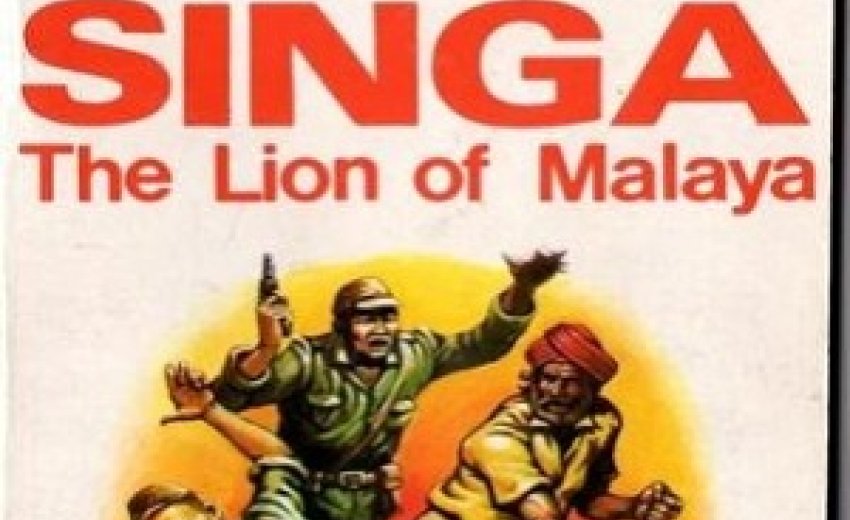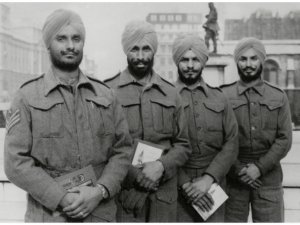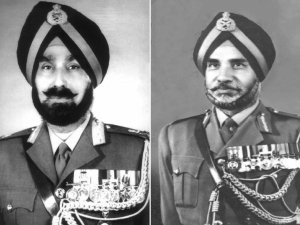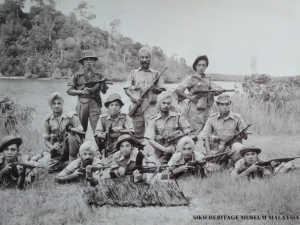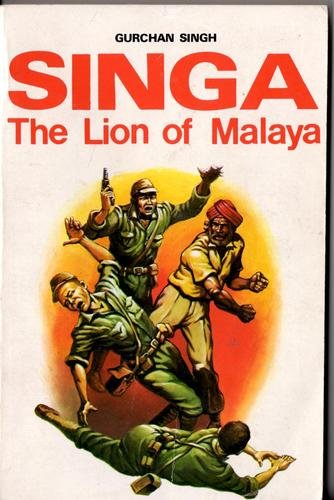 |
| Image by Cougar1Books |
This is the story of a Malayan Resistance Movement organised and led by Gurchan Singh, a Sikh detective in the Malayan Police Force, who remained behind with his family in Kuala Lumpur when the British administration, crumbled before the Japanese invaders….
Gurchan Singh was born in May 1914 and he was educated in the Methodist Boy School in Kuala Lumpur. After passing his Cambridge Examination, he joined the Police as a recruit constable and work hard for five years, after which he was made a detective constable. After the war he was promoted to a Police Inspector and later to Superintendent of Police.
Living with his family in Kuala Lumpur, and under the guise of a number of civilian occupations, Gurchan Singh began his resistance movement. True, at the beginning it could scarcely be described as a movement, since the whole organisation consisted of himself and two of his brothers. But gradually the organisation grew, as trusted friends, and associates were brought into the movement, and Gurchan Singh's sphere of influence widened from the immediate neighborhood of Kuala Lumpur and extended over a large part of Malaya.
The organisation did, at times, carry out telling acts of sabotage, but its main force was in the field of propaganda and psychological warfare. Leaflets written and produced by Gurchan Singh were regularly distributed throughout the area covered and these were so effective in telling the civilian population of Malaya some of the true facts about the war and the occupation that eventually the Japanese placed a price of 100,000 dollars on the head of the resistance leader they knew as “Singa”.
At one time he organised cycle races and carried leaflets inside the hollow bars of his own machine. On another occasion he attended a race meeting and, with the greatest audacity, and under the very noses of the Kempetei (the dreaded Japanese secret police) plastered the race course with the latest edition of his newsletter Singa.
For several months, Gurchan Singh worked as a milkman and cowboy by day and a bill-poster by night. He felt that merely propaganda was not enough to cripple the Japanese activities. He became the mastermind behind more active operations like sabotaging the railways which resulted failure of engines on unexpected spots, not only delaying that one train but also holding up other transport; and at that time breakages and delays of any kind meant a lot to the Japanese. He sought a help from a trustworthy friend John Sandasamy who was the second class engine driver with the Railways then. By delaying many trains and putting several locomotives out of action, John seriously disorganised much of the Japanese transport system by rail. His sabotage work was of considerable assistance to the allied cause.
On another occasion, posing as a newspaper man from Kuala Lumpur, he actually attended a Japanese Press conference in Singapore, and it is not surprising that his subsequent references in his newsletter to the proceedings of the conference led to even further intensification of the efforts of the Kempetei and its stooges to capture him. The very simplicity of his organisation and audacity of his work contributed to its success and for a time gave a measure of protection. The Japanese were convinced that Singa was the name of a highly organised band with jungle headquarters and in constant touch with the Allies. With due honour to Gurchan Singh's two brothers and to the many other helpers, some, of whom were martyred for their efforts, Singa was to a large extent a one man show.
Finally, perhaps, inevitably, Gurchan Singh was betrayed and his propaganda work came to an end but not his story. He was arrested by the Kempetei but his luck held and, audacious as ever, he escaped. He was in Moulmein when the war ended and he then returned, via Bangkok, to his family in Kuala Lumpur.
This privilege should be extended to the Singa Organisation, who voluntarily and independently worked for the cause of the Allies during the Japanese occupation of Malaya at the risk of torture and death. All rendered invaluable service and stood loyal and true under condition of grave danger and hardship. Some sacrificed their comfort and happiness others gave up their lives. They all sincerely fought for freedom. In honour of them all their names are given here.
Dr. Abdul Ghani , Anthony Ash, Arunasalem N., Aster Gunasekara, Augustin Lye Nyen Foo, Balakrishnan M. , Sub Inspector Behara Singh, Bhagat Singh Gill, Sargent Bughar Singh, Bhag Singh, Chanan Singh, Chong Tak Ngit, Inspector Dan Singh ,Gurdial Singh, Gurnam Singh Bull, Gurbachan Singh , Ismail De Silva , John Sandasamy, Kehar Singh, Khem Singh, Dr. Kok Ho Teik, Leong Hew Meng, Leong Kai Swee, Madame Lau Peng Kim, Inspector Low Ghee Beng, Lall Singh Bull, Ramasamy Ganga, Ramasamy Pakry, Rodrigo, B. M., Sarjeet Singh, Inspector Sarmukh Singh, Suppiah P., Shanmugam M. , Tan Beng Hock, Tan Beng San, Thirunalan M., Toh Chin Guan, Teja Singh ,Yap Ghim Hoe & Yeoh Chai Lye
When the British administration ceased to exist, Gurchan Singh might have gone over the Japanese for employment, as some of his misguided countrymen did, in an attempt to further, with Japanese aid, the ideas of Indian nationalism or he might have settled down to some civilian occupation and remained outside political affairs. But Gurchan Singh chose another, more hazardous course. Regarding himself as a British subject (and an extremely loyal one), he decided where his duty lay, and set himself steadfastly against the Japanese.
